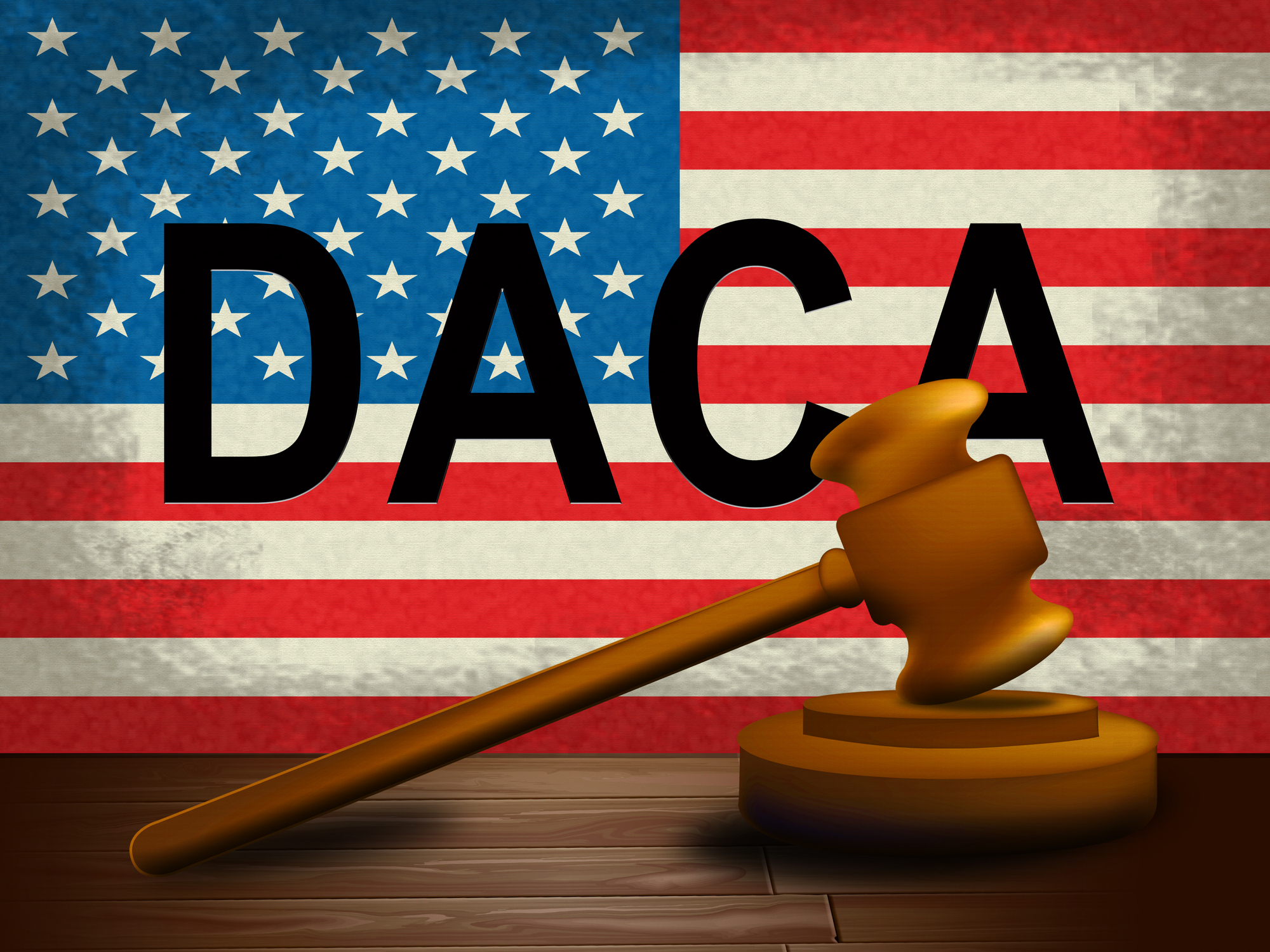Supreme Court Ruling Saved DACA, but the Fight Continues for Undocumented Individuals | CSUN Experts

Image credit: stuartmiles99, iStock.
The CSUN University Student Union DREAM Center provides resources and services to undocumented students, mixed status families, staff, faculty, allies and future undocumented students. DREAM Center staff members Madison Villanueva and Daniela Barcenas authored this article as part of our ongoing CSUN Experts series.
In a long-awaited decision, the U.S. Supreme Court voted 5-4 to overturn Trump administration efforts to rescind the Deferred Action for Childhood Arrivals (DACA) program, which protects hundreds of thousands of undocumented individuals who immigrated as children from deportation.
The Supreme Court decision, which was released on June 18, fully restored DACA, thus opening up opportunities for employment and providing legal protections from deportation for those who are eligible. The court didn’t weigh in on the merits of eliminating DACA, but instead ruled that the administration didn’t meet the legal requirements for providing a reason for the move.
So while the court’s decision is a victory for the undocumented community, it leaves open the door for future challenges to DACA, leaving more work to do to protect vulnerable undocumented individuals.
About DACA
After years of advocacy by undocumented youth, DACA was implemented in 2012 through an executive order by the Obama administration. DACA provided eligible individuals with a renewable, two-year protection from deportation and employment authorization.
However, in 2017, then-Attorney General Jeff Sessions declared DACA unconstitutional and proceeded to rescind the program. This decision effectively halted all initial applications from being processed. DACA renewal applications were processed only after the Trump administration received several lawsuits, which brought the issue up to the Supreme Court for review.
What the ruling means
For current DACA recipients, the Supreme Court decision means that renewal applications will continue to be accepted. Their ability to hold employment and be safe from deportation will remain valid as long as their DACA has not expired. DACA-eligible youth who never applied before its termination in 2017 now have the ability to submit an initial DACA application.
However, U.S. Citizenship and Immigration Services (USCIS) has not yet released the DACA application forms, nor announced when they will begin accepting them. It is unclear if advance parole permits, which allow for DACA recipients to travel abroad for educational, employment and humanitarian reasons, will be reinstated. Many DACA recipients used the advance parole opportunity to study abroad or visit ailing family members. Advance parole also has the added benefit of providing legal entry, which facilitates the ability to apply for a green card, should an opportunity come up.
Given it is an election year, and there is not much time for the Trump administration to try and challenge this policy again, we don’t foresee any additional attacks on DACA this year — or at least we hope not. However, if Trump is re-elected, we do believe he will try again to get rid of the program. Additionally, USCIS released a very clear statement opposed to the Supreme Court decision, so they could possibly delay the creation and release of paperwork for initial applications to now be accepted.
The work to be done
Undocumented individuals remain vulnerable for a variety of reasons, including that current laws make it difficult for them to obtain work authorization. The reality is DACA only benefits a small portion of the undocumented population and provides temporary relief from deportation; this is not a sustainable option for all undocumented individuals.
In the near future, we need to create alternative options for undocumented students to generate income and pursue careers that don’t require a Social Security number. It is up to higher education institutions, companies and organizations to create pathways that would allow undocumented individuals to obtain a sustainable income and experience in the field. Undocumented students have a difficult time accessing opportunities after obtaining their bachelor’s degrees because, while they were pursuing their undergraduate degree, their access to these type of opportunities was little to none.
It is also crucial to note undocumented people will continue to be unsafe if there is no pathway to citizenship. Furthermore, we encourage allies to follow and support immigrant-led organizations that advocate for immigrant rights and an end to deportations.
Resources for CSUN Students
CSUN and the CSU have provided many resources for undocumented students. Through the CSU Legal Project, CSU students, staff, faculty and their immediate family members now have access to free legal services. At CSUN, legal services are provided by CARECEN (Central American Resource Center) at the DREAM Center and the Student Legal Support Clinic at the Reseda Annex. We encourage the CSUN community to take advantage of these resources, especially when seeking to submit a DACA application, to avoid fraudulent providers.
CSUN’s DREAM Center provides support for undocumented students, students from mixed-status families, and allies. The DREAM Center hosts office hours for students to meet with staff, financial aid counselors, University Counseling Services counselors and faculty mentors.
We also provide information sessions for the CSUN community to learn about what it means to be an ally to undocumented students. CSUN provides financial assistance through scholarships and emergency grants, and is committed to finding new avenues to support its undocumented community.
About CSUN Experts
CSUN Experts is a series of articles written by CSUN faculty members and other experts who share insights and expertise about newsworthy events and issues. Faculty members who would like to pitch a CSUN Experts idea can email csuntoday@csun.edu.
About the Authors
Madison Villanueva is a program assistant at the CSUN USU DREAM Center.
Daniela Barcenas is a student success advisor at the CSUN USU DREAM Center.

 experience
experience